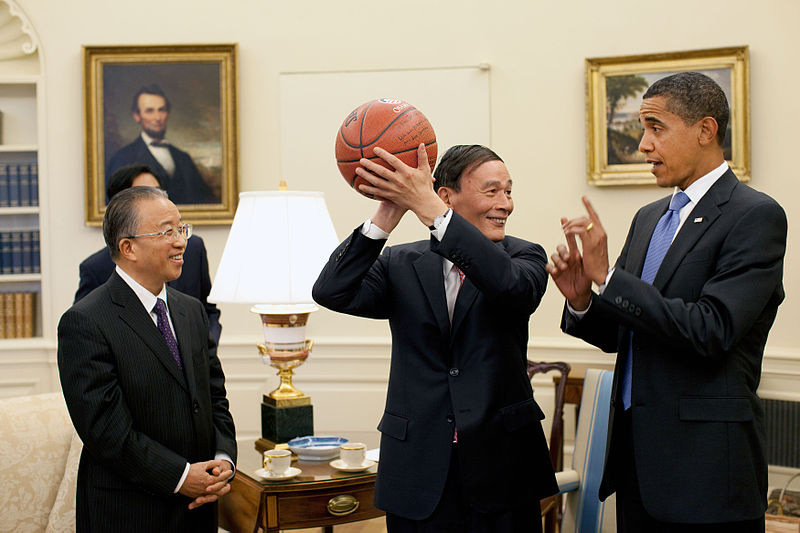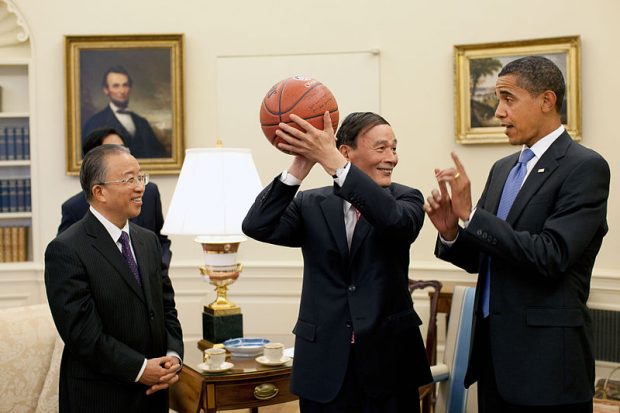
Beijing must adapt to unusual US-Russia ties

Liu Ying (Global Times, People’s Daily)
The direction of US-Russia relations under Donald Trump’s leadership has become a hot topic recently. Although normal official channels of collaboration between Moscow and Washington have been closed, the two have been seeking other ways to ease bilateral tensions.
Since the end of 2013, the crises in Syria and Ukraine have fueled the hostility between Russia and the US, stalling an improvement in their relations. But right before the US election, a slim hope rose. At the 13th annual Valdai Discussion Club, Russian President Vladimir Putin changed his past hard-line attitude and said Russia and the West, especially the US, should break out of the vicious circle of blaming each other and seek dialogue.
Following Trump’s win, Putin and Russian Prime Minister Dmitry Medvedev sent messages of congratulations. Then Russian Ambassador to the US Sergey Ivanovich Kislyak came to Stanford University to give a speech, noting that there is no new Cold War between Russia and the US and hoping diplomatic shifts by the new administration will inject new momentum toward improving the bilateral relationship.
Signs show that in the post-Barack Obama era, US-Russia ties are bound to improve. But from the trajectory of bilateral relations since WWII, it is not difficult to see that the two countries have always experienced ups and downs.
Obama used to work on improving the relations with Moscow. But as he leaves office, bilateral ties have been dragged down to their lowest ebb. In addition to the Syrian issue and the Ukrainian issue, the two are unlikely to reach consensus or compromise in a number of areas such as NATO expansion, anti-terrorism, arms control and human rights.
Current US-Russia relations are at an impasse for several reasons. The first is the war in Syria and the Ukrainian crisis. Another is the rebalance of power in post-Cold War Europe. The eastern expansion of NATO after the dissolution of the Soviet Union, US deployment of anti-missile systems in Europe, the Georgia War in 2008 and the Ukrainian crisis in 2014 have all made the tensions between Russia and the US escalate.
The ideas between the two countries also clash. They are divided in issues such as global leadership, national sovereignty and regional influence. But judging from the interactions between the two and Trump’s governance style, they may manage to avoid major conflicts and seek consensus in some areas such as culture and education.
Mainstream opinion in the US believes that it is populism’s challenge toward neo-liberalism that pushed Trump into the Oval Office. Coincidently, Kremlin press secretary Dmitry Peskov said that the foreign policies of the new US president share much in common with those of Putin; both put national interest above abstract values such as democracy and human rights. If Trump can mitigate his tactics amid the anti-globalization wave, the two may have much common ground as the world tilts toward multilateralism.
Narrowing or avoiding conflicting ideas over national interest does not necessarily mean Russia and the US can come close. Their strategic mistrust cannot be eliminated right away. They also hold disputes about major core interests. In particular, Trump claimed that he will strengthen the US’ overseas military deployment to ensure domestic development will not be menaced by external forces. This is likely to drag bilateral ties to a new low.
China must adapt to a pragmatic yet unusual Russia-US relationship and adjust its policies accordingly. The Sino-US relationship, which is heading for a new type of major power relationship, and the ever closer China-Russia strategic coordinative partnership, may both face changes after the new US president takes office.
Precisely speaking, the short-term risk is that by the end of this year, the EU will decide whether to continue its sanctions on Russia, and the long-term risk would be whether the Trump administration will articulate feasible foreign policies to handle changing international relations.
The new US government is about to come to power. Russia will hold presidential elections in 2018. In the next three to five years, the triangular relations between China, the US and Russia will face new rivalries. But neither the Sino-Russian relationship nor the US-Russian relationship is a zero-sum one. China-Russia relations must show flexibility and find more common interests to fit the times.
The author is an associate professor at the Institute of International Relations of China Foreign Affairs University, and a visiting scholar at Stanford University.


